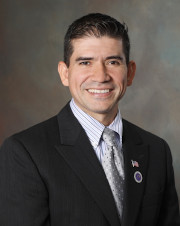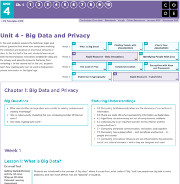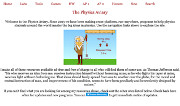
National CyberWatch Center
nationalcyberwatch.org
National CyberWatch Center has been funded as an Advanced Technological Education (ATE) Regional Center of Excellence since 2005 (NSF Award Nos. 0501828 and 0902747) and has expanded its membership to over 200 two- and four-year member institutions in 46 states. With their most recent award, the center transitioned to an even broader scope as an ATE National Center of Excellence. The mission of CyberWatch is "Leading collaborative efforts to advance cybersecurity education and strengthen the national cybersecurity workforce." The center is building a culture of collaboration among colleges and universities to: promote the growth of cybersecurity education programs nationally, especially in community colleges; build program and faculty capacity by sharing replicable models of excellence; promote the cybersecurity profession through a national dissemination program; strengthen student capacity and expand pathways to cybersecurity careers; and support research on cybersecurity education. By promoting "models of excellence," CyberWatch is expanding high-quality cybersecurity programs at community colleges around the nation. The center is mentoring colleges to achieve the Center of Academic Excellence in Information Assurance Education - 2 Year (CAE2Y) designation; increasing students' awareness of cybersecurity careers and their participation in cybersecurity competitions at the K-12 and college levels; growing the number of faculty able to teach cybersecurity topics; assisting with curriculum development at all levels; expanding the knowledge base of what works (and what does not) in cybersecurity education at all levels; and continuing effective dissemination mechanisms, including the center's Web sites, newsletters, reports, conference presentations, and workshops and institutes, all of which advertise the center's services to a broad community. As a national center, CyberWatch is leading the effort to bring cybersecurity education at community colleges to the forefront of the national dialogue, thereby helping employers across the nation to meet a critical workforce need.







